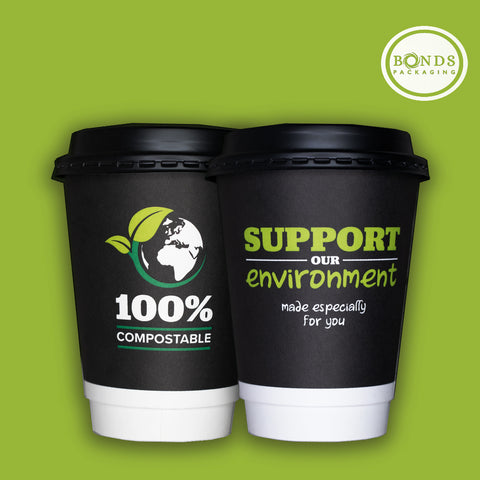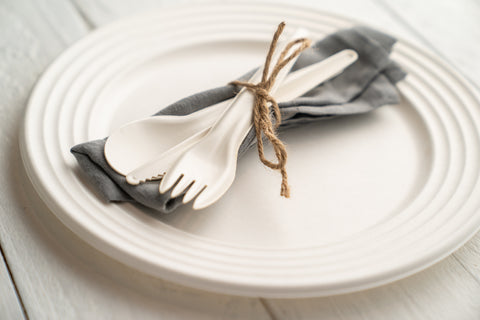Recycling News and Bonds Packaging
Recycled packaging has been a focus for decades. There are some very exciting things happening in the Eco-Friendly/Recycling world. We all know the environmentally friendly packaging efforts are continually growing, and here are some items of news that are trying to help combat the problems that need to be solved.
New Plastic Recycling Facility in the UK
The first packaging solution in the disposal sector focusing on recycling is underway. Developer Peel L&P Environmental is moving ahead with plans to build the UK’s first plastic recycling park in Cheshire. The investment of £165 million in this industrial park will be developed at Protos and extend beyond the already pre-approved plans for a plastic-to-hydrogen plant also to be built at the site. This takes plastic recycling one step further (beyond pellets/flakes for re-use) into fuel production from recyclable plastics.
Summary of key activities on the Protos site:
* This is a materials recycling facility. It will separate out the dry mixed recyclable materials into different waste streams identifying them for recycling. Glass, Paper, Plastic (several types), and Card are the 4 streams.
* Plastics Recycling 1: Reusable packaging in the form of plastic from the Mixed Recycling Facility (MRF) and mixed recycling plastics are separated into different plastic types. With the separated plastics further split out, they will either go to the PRF2 (see below) or PET recycling plant which already has consented to take them on at Protos.
* Plastics Recycling Facility 2 (PRF2): The pre-sorted plastic from PRF1 is then washed and further processed into smaller pellets or flakes for reuse.
* The Polymer Laminate Recycling Facility: the plastics such as crisp packets and baby food pouches will be heated and broken down into oil for them to be used in manufacturing new products, and the aluminium will be recovered for further recycling.
* Hydrogen Refuelling Station: hydrogen from the pre-approved plastic-to-hydrogen facility is used to supply up to one thousand kilograms of hydrogen per day for vehicle consumption. This fuel powers approximately 20 HGV’s from outside Protos and a similar number of on-site HGV’s servicing the operations within the Protos facility.
Peel now plans to work with potential operators to bring forward construction on the site, making the Protos facility a fully comprehensive recycling facility.
The Scale of the Issue
Approximately 60% of all plastics produced worldwide are used for food packaging. Due to the environmental and human health effects of non-degradable plastic packaging, many are fighting to reduce plastic production and increase recycling. Environmentally friendly food packaging is becoming more widespread. Eco-Friendly food packaging often uses sustainable bioplastic and plant-based extracts. They are biodegradable, reusable, and free of hazardous chemicals making it ideal for sustainable packaging.
Studies show that while they have been shown to contain some chemicals and NIAS, the movement of chemicals into food and your body is much lower with eco-friendly packaging, making it safer for the environment and human health.
There are 3 petroleum-based plastic products to avoid which find themselves in different types of packaging.
- Packaging is wasteful in its nature, but doesn't have to be if it is designed to be part of a larger solution. Single-use plastic, where common items include straws, styrofoam packaging (pellets, molds, cups), liquid bottles, bottle tops, and various plastic bags.
- Plastic storage boxes such as takeaway containers, where large amounts of waste from these containers lead to pollution and Environmental toxins. Here is where paper board based packing boxes can shine, with their insulated grease lining delivering the quality of delivery with the reduction in pollution.
- Ever wondered what BPA free means? It is the contamination that the plastics with BPA (Bisphenol-A) can impact both the environment and the human body. BPA is an additive used to make Polyvinyl Chloride (PVC), a material used in many plastic products. BPA is shown to migrate from food packaging to the food itself.
At Bonds Packaging
Here at Bonds Packaging, we are constantly looking to increase our Eco Range, to offer customers a variety of options to support the Environment via sustainable packaging solutions (including compostable, recycling, and biodegradable products). This includes bespoke design on eco-friendly products, where required, as customers look to market and differentiate via bespoke designs on the packaging. We have invested in creating our own compostable cup which was designed by/for us, which is an attractive and reasonably priced option for customers wanting more than a plain design.

We have supplied some customers with a biodegradable film sandwich pack. For another customer, we are currently designing a football shirt biscuit topper in natural colours. We are changing our disposable cutlery offerings from plastic to paper and we are looking to introduce a paper-based coffee lid too. Paper based packaging is easily recycled and carry the same health benefits in hygiene when cared for throughout the supply chain. We are typically guided by our customers who express their desire for specific products/materials. In this way, we are continuing to grow our eco offering to both existing and prospective customers.

Our Eco-friendly range includes paper-based food packaging, bakery bags, cups, lids, cup carrier trays as well as paper carry bags, poly bags, cake boxes and paper/board food containers.
Some Top Tips to Cut Down on Plastics
* Choose reusable metal or bamboo straws in place of single-use plastic straws. A cleaning brush for the reusable straws is a must have for hygiene maintenance. Alternatively, single use paper straws are biodegradable and eco-friendly.
* Non-plastic or BPA-free reusable water bottles (glass), or stainless steel bottles/flasks with a bottle brush to clean them (silicone brushes are ideal).
* At-home water filters, either tap filters or water jugs with filters, which helps reduce the need for single-use plastic water bottles.
* Choose glass containers rather than plastic for food storage.
* Recycle appropriate plastic food packaging to reduce your carbon footprint.
* Wash and re-use plastic food containers such as ziplock bags and Tupperware type containers as this can help reduce the environmental impact.
The Big Players
Costa Coffee and McDonalds have teamed up with motorway service station operator Road Chef to add coffee cup recycling points to all 30 of its UK sites. Overall they will host 65 recycling points. Road Chef records more than 50 million customers to its UK service stations every year. McDonalds already host recycling bins with a cup station in all its bigger stores, with more than 1,100 recycling units for coffee cups installed. Costa has been rolling out in-store collection points at stores outside of service stations.
It is worth noting that McDonalds and Costa are both looking to scale cup re-use as well as recycling disposable cups.
The partnership will be assessed so businesses can further optimize and boost recycling across the country. Costa pledged to help the recycling of 500 million cups annually by the end of 2022. It launched the national Cup Recycling Scheme, which expanded to receive co-support from McDonalds, Burger King, Greggs, Caffe Nero, Pure and Lavazza Professional. Under the scheme waste collectors are incentivised to collect cups with an extra payment of £70 per tonne.
In Other News
Hubbub and Lambeth Council have launched a new recycling on-the-go incentive, pairing 40 pairs of recycling and rubbish bins positioned strategically across Waterloo, Brixton, Vauxhall, Clapham, Streatham and West Norwood. These areas have a wide range of residents, visitors and commuters who are encouraged to recycle on-the-go.
The bins are solar compacting and fitted with smart sensors to detect the fullness of the bins. There is also clear messaging to make it easier for people to know what to put in the recycling bin, to reduce frequency of too much contamination from the wrong items to recycle.
The Recycling Magazine states that pioneering recycling turns mixed waste into premium plastics with no climate impact. The recycling method is inspired by natural carbon cycle and could eliminate the climate impact of plastic materials, or ultimately even help clear the air of carbon monoxide.
Current plastic recycling methods are able to replace no more than 15-20% of the fossil raw material needed to meet society’s demand for plastic. The advanced methods proposed by researchers are based on Thermochemical technologies and involve the waste being heated to 600-800 degrees Celsius, the waste then turns to gas, which, after the addition of hydrogen, can replace the building blocks of plastics. Using this recycling method could decouple new plastic products from the supply of new fossil raw materials.
The key to more extensive recycling is to look at residue waste in a whole new way, as a raw material, full of useful carbon atoms. The waste then acquires value, and you can create an economic structure which will facilitate the collection and use the material as a raw material worldwide.
The principle of the process is inspired by the natural carbon cycle. Plants are broken down and produce carbon dioxide when they decay. The carbon dioxide, using the sun as an energy source and water creates new plants through the process of photosynthesis. The goal is to create an equivalent cycle for plastics, the key to the transformation required for a sustainable society.
If everyone makes even a little change, the overall effect can have a big impact on the environment. Both businesses and individuals have the chance to make changes that will be felt on a global scale. We all have a responsibility to do out part. At Bonds Packaging we look forward to working with the packaging industry, as well as our customers and the end-users to keep driving this essential movement forward.

